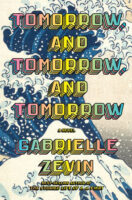Guest Post by Kevin Brown

Plot is not the point in Lorrie Moore’s latest novel, If I Am Homeless This is Not My Home. Some people die, while some people live, and some of the living people have conversations with the people who have died. And not all the ghosts in the novel are those who have died, though some certainly are. Moore wants to explore what it means to be alive, to have a life, while also digging into mourning and grief and death, primarily through Finn, the main character. Finn’s ex-girlfriend, Lily, has struggled with mental illness as long as he has known her, and she has tried to commit suicide numerous times. Finn’s brother, Max, is dying of cancer. Finn doesn’t deal well with either of these situations, often refusing to face the reality of their mortality, but also ignoring the truths about their relationships. There are also interspersed chapters from letters written by Elizabeth, a woman who ran an inn in the post-Civil War South, a minor storyline that ultimately connects both literally and thematically to Finn’s story by the end of the novel. Lest this description sound rather bleak, Moore is as humorous as she always is, though more clever than funny. Still, she acknowledges the joy and laughter we must continue to find, even when—perhaps especially when—life and the end of it becomes miserable.
I Am Homeless If This is Not My Home by Lorrie Moore. Alfred A. Knopf, June 2023.
Reviewer bio: Kevin Brown has published three books of poetry: Liturgical Calendar: Poems (Wipf and Stock); A Lexicon of Lost Words (winner of the Violet Reed Haas Prize for Poetry, Snake Nation Press); and Exit Lines (Plain View Press). He also has a memoir, Another Way: Finding Faith, Then Finding It Again, and a book of scholarship, They Love to Tell the Stories: Five Contemporary Novelists Take on the Gospels. Twitter @kevinbrownwrite or kevinbrownwrites.weebly.com/.


